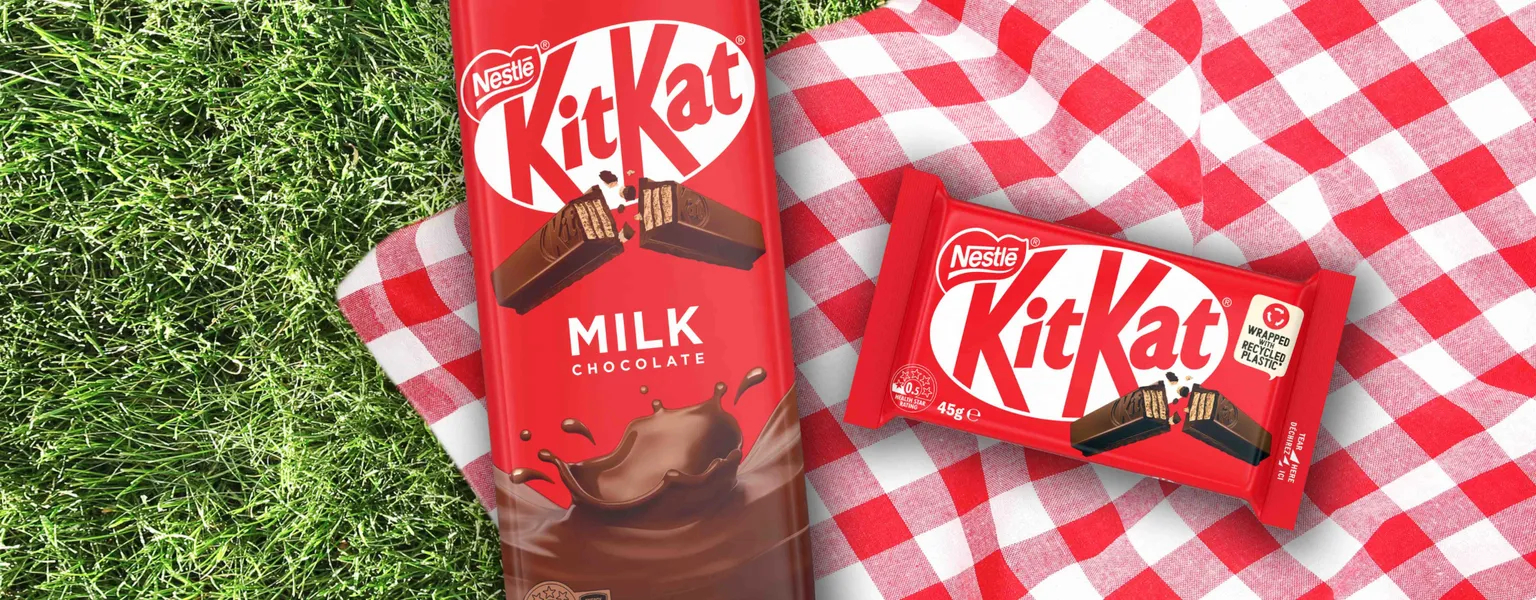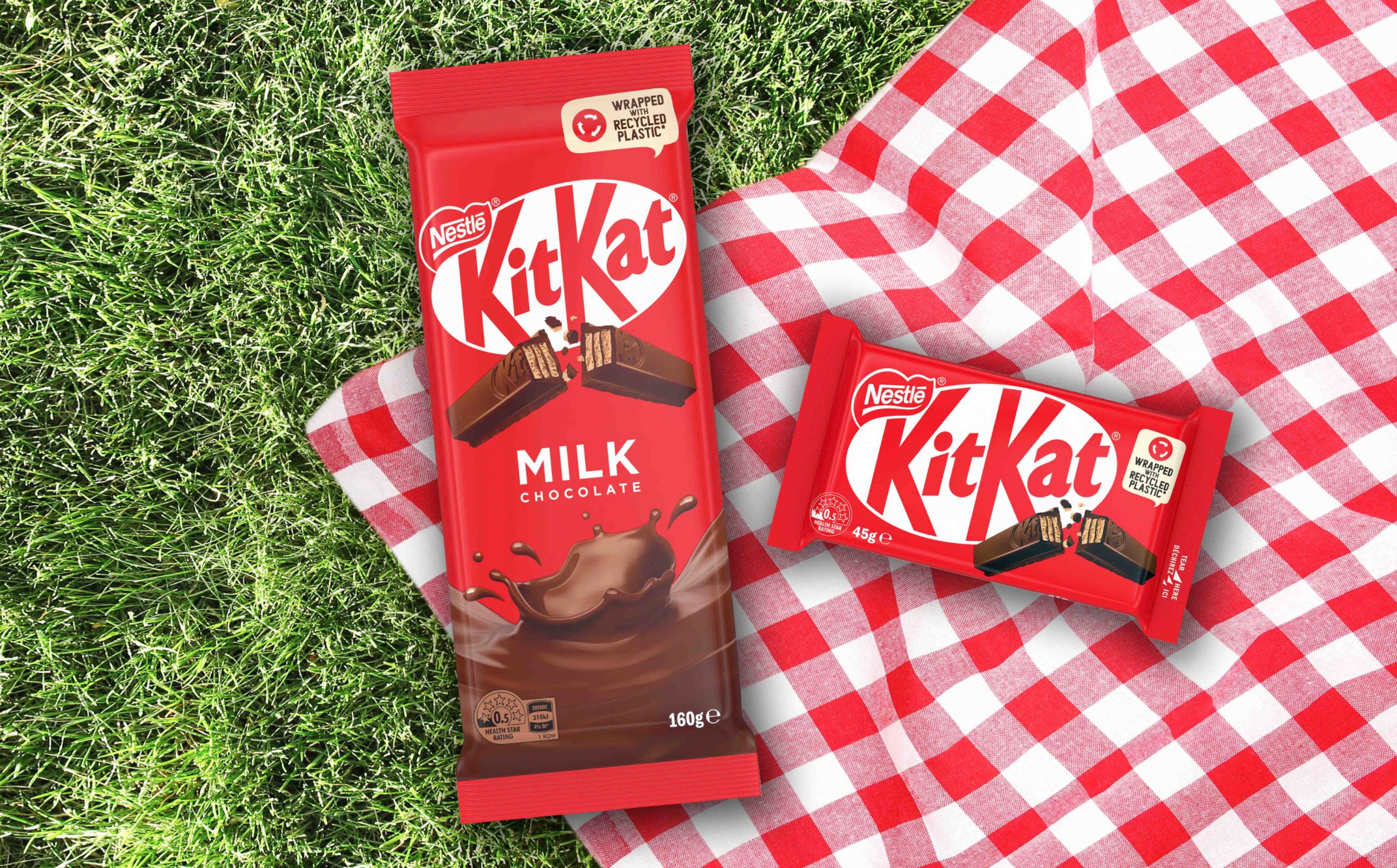KitKat unveils wrappers with 90% recycled plastic in Australia

Sustainability
KitKat is increasing the use of recycled plastic in the wrappers of select products to an impressive 90% (mass balance), marking an Australian milestone and outpacing other major food brands in the country.
This move by KitKat translates to an annual reduction of 1,200,000 square meters of virgin plastic – an area equivalent to approximately 1000 Olympic-sized swimming pools. The allocation of the 90% recycled plastic follows the ISCC^ mass balance approach, ensuring a transparent and eco-friendly production process.
The newly updated wrappers will grace beloved KitKat treats such as the classic 4-finger KitKat, KitKat Gold, KitKat Chunky Aero Mint, and the iconic KitKat block.
This endeavour builds upon KitKat's previous achievement, as last year it became Australia's inaugural food brand to wrap its products in soft plastic made with 30% recycled plastic, using the mass balance method. Since then, more than 40 million KitKat 4-finger bars have been enveloped in this sustainable packaging.

The freshly packaged KitKat products are available nationwide.
Nestlé General Manager Confectionery, Andrew Lawrey, said: KitKat lovers tell us they want breaks for good – and that packaging matters to them. Their appetite for change is accelerating and we know they are looking for better packaging, including packaging made with more recycled material. It’s critical that our packaging keeps KitKat safe and fresh and delivers that delicious snap consumers love. While recycled plastic suitable for soft plastic food wrappers continues to be scarce, we will keep working closely with our suppliers to transition as quickly as possible.
Nestlé, the parent company of KitKat, is committed to expanding the use of food-grade soft plastic wrappers made with recycled plastic (mass balance) across more product ranges as global availability of this sustainable resource increases.
Related News
-
Sustainability
Nestlé trials reusable steel containers for Nesquick in Germany
-
Sustainability
Nestlé and Philippines DoST collaborate to drive sustainable packaging solutions
-
Sustainability
nucao 'first' chocolate manufacturer to embrace paper primary packaging
-
Sustainability
Australian retailers publish roadmap to improve soft plastic recycling
-
Sustainability
Coles to phase out soft-plastic bags nationwide by end of June




